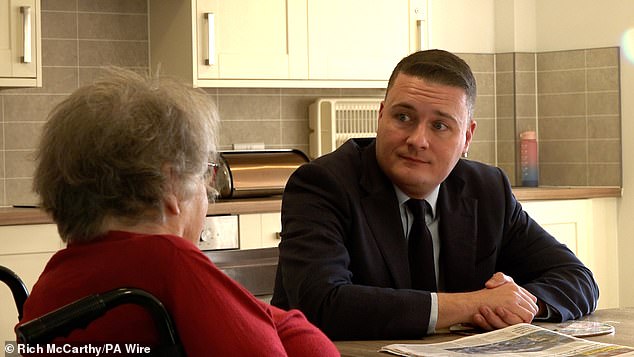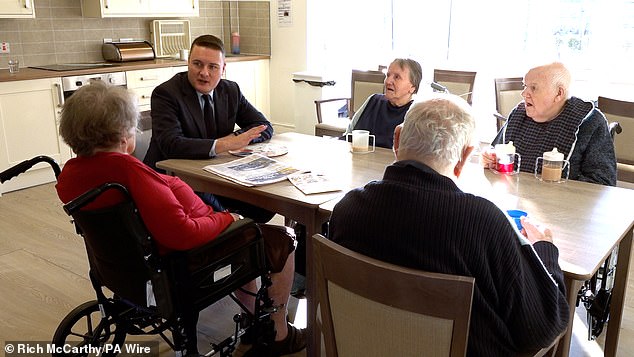Labour’s delayed social care reforms ‘will cost the lives’ of older people and damage the economy as the government is accused of ‘rocking the boat’
Delays in social care reform are ‘costing lives’ and damaging the economy, the president of the Royal College of Emergency Medicine has warned.
Ministers this week announced the establishment of an independent commission, chaired by Baroness Casey, which will begin work in April but will not publish its final report for another three years.
Charities, MPs and social care campaigners suggested the government had ‘thrown the bucket’ and now fear the timetable for reform could be even later than 2028.
Dr. Adrian Boyle of the Royal College called the delays ‘very frustrating’ and warned that patients were being ‘stuck in hospital’ due to inadequate social care services.
He told Times Radio: ‘The question is how much is it going to cost and where are we going to find the money?
And that seems like an awfully long time to try and wait for an answer, which is a pretty simple but big question. We have had many reports, but we have not implemented them.
‘What I see is that patients are harmed by delays.
Delays in social care reform are ‘costing lives’ and damaging the economy, the president of the Royal College of Emergency Medicine has warned. Pictured: Wes Streeting speaks to staff and residents during a visit to Burnrigg Court residential care home in Carlisle

Mr Streeting spoke to staff and residents as part of a social care announcement. Ministers this week announced the establishment of an independent commission, chaired by Baroness Casey, which will begin work in April but will not publish its final report for three years.
‘The lack of good social care means that some people come to hospital when they don’t need to, but on the other hand, people also end up being stuck in hospital, which is not good for them after their acute illness has been treated. .
‘Not only does it cost lives, it also costs our economy a lot. Caring for an elderly person who is about to be discharged from the hospital is a very inefficient way to care for him or her.
‘Hospitals are designed for acute problems, not chronic problems. Patients become increasingly dependent the longer they stay in the hospital. It’s a very expensive way to deliver less than great care.
Last year, a report from Lord Darzi to the NHS, commissioned by Health Secretary Wes Streeting, described the state of social care in Britain as ‘deplorable’.
Both the Labor and Conservative governments have previously pledged to get a grip on social care funding to best serve the country’s aging population, but have rejected or postponed major proposals due to financial pressures.
Liberal Democrat leader Ed Davey said last night: ‘We cannot afford to wait another three years for a new plan. We are really concerned that what has been announced seems like an excuse to wait another ten years.
‘I would like to see this review done and dusted within a year at most. Then we can finally move on to implementing much-needed reforms.”

Charities, MPs and social care campaigners suggested the government had ‘left the house behind’ and now fear the timetable for reform could be even later than 2028.
The commission’s first phase, which will report in 2026, will identify critical issues and recommend medium-term improvements.
Recommendations on how to organize healthcare services will not be made until the second phase of the report – but they will not be available until 2028.
Labor has been accused of not acting quickly enough. This announcement comes six months after their election.
One of their first acts in government was to scrap plans for a lifetime cap of £86,000 on healthcare costs from October – a move that Sir Andrew Dilnot, the architect of the reforms, called a “tragedy”.
But ministers rejected claims that they were delaying reforms. Care Minister Andrew Gwynne told LBC: ‘That cynicism would be justified if we hadn’t hit the ground running on transforming our health and social care systems from day one.’
Health Minister Wes Streeting, who was at Burnrigg Court residential home in Carlisle speaking about the Government’s social care plans, said the Government was “already taking action” and had “done a lot in the first six months” on social concern.
